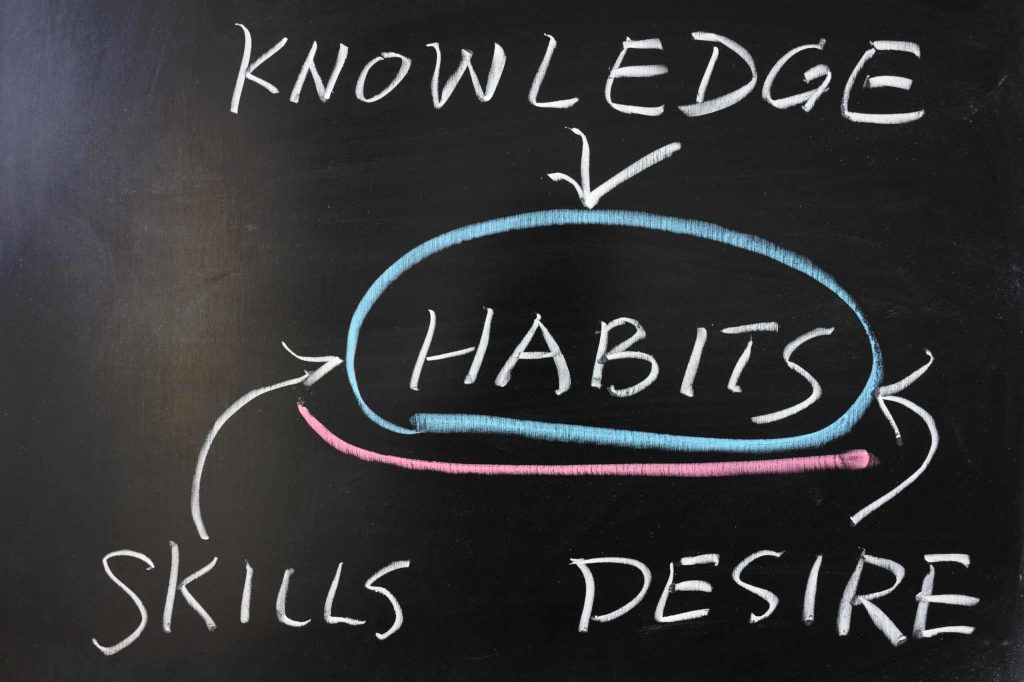Once in awhile, you read a book that sticks with you for the long haul. Ask anyone and I bet they can rattle off a handful of books that have affected them in some way, whether it be a gripping biography or a book that made them cry. Then there are the books that have practical application to the spiritual, mental, and/or physical aspects of life. Stephen Covey’s 25-year-old book ‘The 7 Habits of Highly Effective People’ is that book for me, which I read over 15 years ago as a work assignment. Here are five principles from his book that have stuck with me over the years. Let’s see if they still apply to today’s world.
Identify your core values
Take the time to identify what and who matters to you. What are your dreams and goals? What relationships are most important to you? You could even go all Jerry Maguire and write out a personal mission statement. The point here is that once you’ve thought through your core values, you then align everything you do around them. Does your job in some way align with what you value? Do your extracurricular activities match up with your personal goals? Are you spending time trolling Facebook that could be used to learn a new skill or on deepening a relationship? Things seems to happen almost instantaneously these days, so it’s worth checking in on yourself to see if your actions are taking you in the direction you want.
Plan your week, not just your day
Things happen quickly and don’t we all know it! To stay on track with what was just stated above, Covey encourages weekly planning instead of daily planning. Taking the time on a Sunday night (after the big game of course) to list all the tasks you must accomplish that week, any events and appointments you or your family need to attend, work priorities, etc., will help you see at a glance how much time you actually have in a week. He encourages you to look at the empty space left and see if there are things you can add that would take you to that next level in some area of your life. I believe this absolutely still applies today. We are going at such a rapid pace so taking the time to slow down and ensure you are scheduling in your priorities into the week, and not just letting life happen to you, is a timeless principle that applies to us all.
Strive for interdependence
Teamwork. We’ve probably all attended classroom workshops on it and experienced when it works and when it doesn’t. But over and over in Covey’s book, he provides several examples of the value of not just becoming independent (what many see as the goal), but interdependent. It means really truly seeking to understand those around you, their paradigms, skills, and passions, and putting them to work so that, together, you accomplish exponentially more than if you just ‘did it yourself.’ This takes time at the beginning but the output can be astounding. And the wonderful thing about today’s world is that with the technology we now have available, working with others is no longer limited to a physical location.
Delegate (for real)
Delegating takes work up front, but can be a time bender in the long run. When you delegate, you lessen your workload, yes, but you also empower others to grow and flourish. This enhances relationships, fosters interdependence, and simply accomplishes more. Delegating means clearly explaining procedures and expectations up front, having the other individual(s) explain back the expectations, even if possible, demonstrating what needs to be done. What is one task that you may be able to hand off to someone else today?
Be proactive
Covey writes, ‘[being proactive] means more than merely taking initiative. It means that as human beings we are responsible for our own lives. Our behavior is a function of our decisions, not our conditions. We can subordinate feelings to values. We have the initiative and the responsibility to make things happen.’ Being proactive means spending mental and physical energy on our circle of influence (things in life we can control, such as our attitudes and work ethic) as opposed to our circle of concern (things in life we cannot control, i.e. your co-workers’ attitudes and work ethic). In today’s world, things are happening fast and furious and now, more than ever, we cannot afford to live a reactive life.
So are the ‘7 Habits’ still relevant? I would say an emphatic yes, because the habits are based on principles that generally apply to every human and every facet of life, not just in the workplace. It’s not enough to be effective in the business world but not in your personal relationships, or vice versa, because we all know it’s nearly impossible to compartmentalize the different areas of life. If you haven’t already, I suggest reading the book and then implementing just one of the seven habits into your life this month. It’ll be a win/win for you, your co-workers, and beyond.
